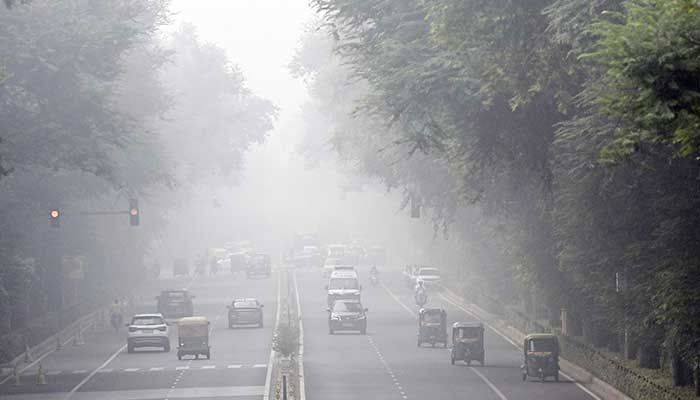The capital of India, Delhi, has closed all primary schools in response to a severe smog crisis enveloping the city. The government of Delhi declared the temporary closure of schools when pollution levels threatened to reach dangerous heights in the toxic air that posed health risks. This decision has registered widespread concern over growing air quality crises and their impact on public health, particularly children.
The Delhi Air Pollution Crisis
For years, Delhi has ranked among the most polluted cities in the world; however, new extremes of the past few days have shocked it into health warnings and government action. The smog now hanging above the city, primarily composed of vehicular emissions, pollution from the industries, and crop burning in neighboring states, has made the air hazardous, especially for vulnerable populations such as children and older people.
Reading of the air quality index has surged into the “severe” category, and PM 2.5 is far over the limit safe for the human body as defined by the WHO. Visibility has dramatically decreased with this thick, toxic fog, and health risks from respiratory disease, heart conditions, and many other complications have drastically increased.
School Closures: Protecting Children’s Health
To save the children from the adverse effects of the smog, the Delhi government has ordered the closure of all primary schools in the city. It will leave millions of students affected and disrupt families’ lives that are already buckled under the pressure of a much larger issue with the pollution crisis.
Closure of primary schools becomes a response to mounting concerns from parents, teachers, and health experts who have raised alarms concerning the severe impact that the toxic air has on the health of young children. Studies proved that such prolonged exposure to high levels of air pollution causes lung damage and exacerbates asthma conditions among children, and even developmental issues ensue. Officials acted promptly enough to mitigate risks to young students.
Health Effects of Air Pollution in Delhi
Delhi is witnessing extreme air pollution with severe health impacts. The dangerous part of PM 2.5 is that it can penetrate deep into the lungs and bloodstream and can cause severe chronic diseases. Not only in the lungs, but this smog also increases cardiovascular diseases, stroke, and even premature death.
This will be severely damaging for a child whose lungs and, by extension, the immune systems are still in development. According to experts, prolonged exposure can lead to stunted lung growth, increased susceptibility to infections, and more significant risks of chronic conditions like asthma and bronchitis.
Government Response and Future Measures
One of the measures followed by the Delhi government includes closing primary schools as a result of this ongoing crisis of air pollution. Authorities have gone further in tightening control over vehicle emissions, strict regulation over industrial activities, and checking the crop burning practices in neighboring states.
However, most environmental activists postulate that these measures alone cannot contend with the roots of Delhi’s pollution. They demand more decisive policy action against pollution control by increasing public transport infrastructure, stricter emission standards for industries, and holistic approaches to waste management.
Public Outcry and the Way Forward
It has incurred public outcry over the smog crisis in Delhi, revealing the need for more intensive government intervention to improve the air quality. The frustration amongst citizens, particularly the parents, was that this form of pollution happens every year, so long-term solutions instead of school closures are asked for systemic sources of pollution.
During this crisis in the city, all experts opine and insist that the authorities and the people must take collective action to raise awareness, adopt stiffer measures for pollution, and change to sustainable development so that the health of future generations is guaranteed.
Conclusion: A City in Crisis
The closure of the primary schools in Delhi reminds everyone about the severe air pollution crisis in the city. This measure has protected children in the short term; however, its primary design message is to point to more intense urgency measures to be put in place for long-term solutions to protect air quality and the health and well-being of residents. As Delhi continues to grapple with smog, one thing is clear: solving the source of these problems requires the collaboration of all sectors of society—government, industry, and the public.















